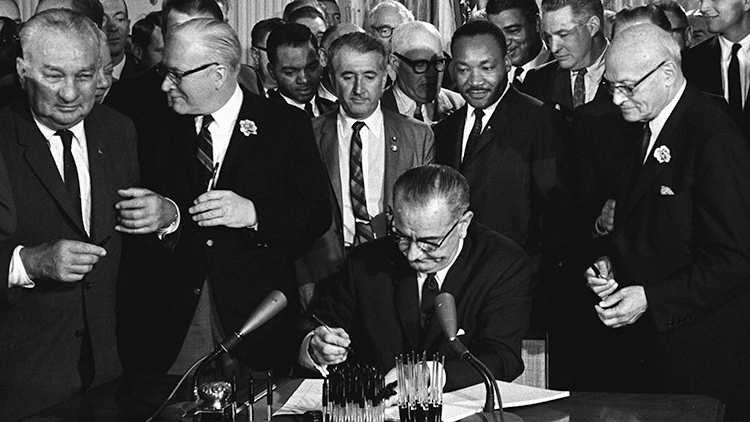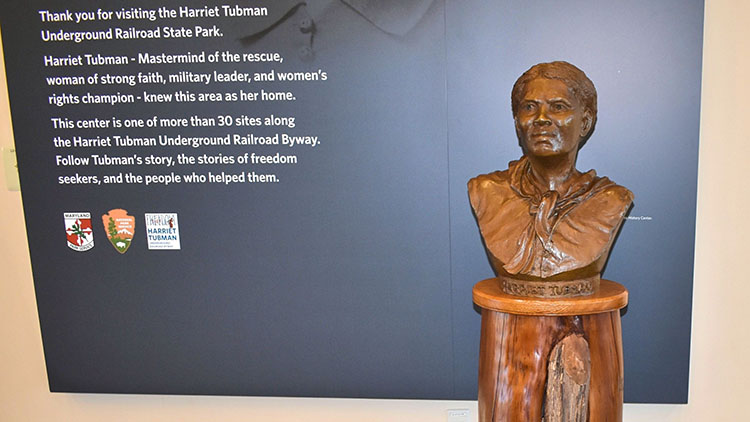
Imagine not being able to eat at a restaurant or go to a movie because of the color of your skin. Well, this could have happened to you if you lived in the United States during the 1960s.
African Americans living in the United States in the 1960s did not always share the same rights as white Americans. Even though some laws were in place to prevent discrimination [treating people unfairly without reason], the laws were not always followed.
Many African Americans began protesting the inequality. People worked in the Civil Rights Movement to end discrimination. They gave speeches, walked in marches, and asked the federal government to help.
President John F. Kennedy wanted to help. He worked on a Civil Rights bill. But, in 1963, he was assassinated. Lyndon Johnson became president.
President Johnson wanted to get the Civil Rights bill passed. He worked with African American leaders and leaders of Congress to prepare a bill that would guarantee equal rights for African Americans. In July 1964, Congress passed and President Johnson signed the Civil Rights Act of 1964.
The Civil Rights Act of 1964 put an end to laws that discriminated against African Americans in public places. This meant that African Americans could go to the same theaters, eat at the same lunch counters, and attend the same schools as whites. It also made it illegal for employers to not hire someone based on race, color, religion, sex, or national origin. The law paved the way for the Voting Rights Act of 1965 which guaranteed voting rights to African Americans. It also helped other minority groups receive fair treatment.
What Do You Think? The Civil Rights Act of 1964 changed people’s lives when it was passed. How do you think it impacts people today?
Photo Credit: LBJ Library photo by Cecil Stoughton/White House Office Photo



